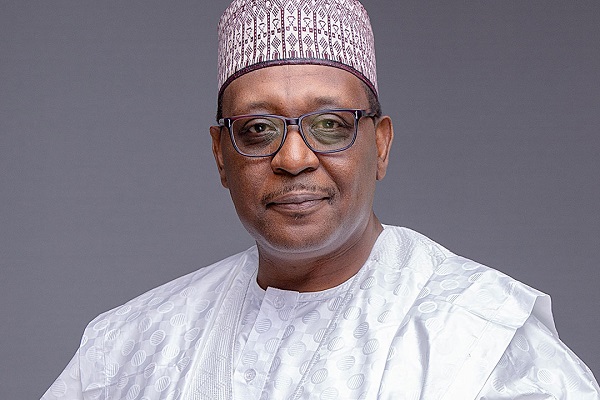
The Federal Government of Nigeria has launched a comprehensive obstetric fistula care programme, initially targeting the National Obstetric Fistula Centres in Katsina, Bauchi, Ebonyi and Edo states. This initiative aims to address a backlog of nearly 400,000 cases.
The programme, to be implemented by the National Health Insurance Authority (NHIA), focuses on saving lives, reducing the physical and financial burden on women, and ensuring health for all Nigerians.
Minister of Health and Social Welfare, Prof. Muhammad Pate announced this during the inauguration of the Fistula Free Programme Steering Committee under the NHIA intervention at a ministerial flag-off event in Abuja.
Obstetric fistula is a devastating childbirth injury affecting millions of young women, primarily in Asia and sub-Saharan Africa. This condition, caused by prolonged, obstructed labour, leaves women unable to control their bladder and bowels. The baby’s head gets stuck in the birth canal, cutting off blood flow to the mother’s soft tissues and creating a hole, or fistula, between the bladder or rectum and the vagina. Surgery is the only cure and untreated fistula can lead to constant incontinence, kidney damage, ulcers, frequent infections and the inability to have children.
Pate explained that the comprehensive programme, set to begin in June, aims to provide immediate medical interventions and long-term preventative measures. The programme focuses on preventing fistula by ensuring that mothers receive proper nourishment, supervision by skilled professionals during delivery and access to emergency specialist care for complications.
The initiative underscores the importance of community and societal involvement. “Vulnerabilities leading to fistula often stem from the community level, including churches, mosques and households. Empowering and educating girls to ensure they are ready for motherhood is a key aspect of the programme, requiring the support of community leaders, political leaders, and civil society,” Pate stated.
Key components of the program include reducing the cost of access to treatment, surgical interventions, education, counselling and transportation for patients. The initiative also highlights the dedication of health workers and the importance of training programs for surgical skills.
“This issue has been present for a very long time, but we are finally taking significant steps to address it. We are starting now, and while it should have been done eight years ago, the fact that we have begun is something to celebrate,” Pate said.
The programme’s success relies heavily on the commitment of healthcare professionals and community support. “With the right political backing and sustained effort, this initiative aims to break the cycle of fistula and ultimately eliminate the problem in the country,” Pate added.
Addressing this challenge will help Nigeria achieve Sustainable Development Goal No. 3, which entails ensuring healthy lives and promoting well-being for all. Ensuring increased access to timely and high-quality fistula treatment, along with comprehensive post-operative care, is essential for achieving high success rates and reducing residual incontinence among women with fistulas in the country.
Director-general of NHIA, Dr. Kelechi Ohiri outlined a comprehensive strategy to address the needs of women suffering from obstetric fistula, emphasising the importance of financial access and systemic support for vulnerable populations. Ohiri, who also serves as the president of the committee, highlighted the alignment of this initiative with the Nigerian health sector’s strategic blueprints, particularly focusing on the intersection of poverty and vulnerability among women with obstetric fistula.
“These women are typically young, malnourished, and from impoverished households, making them prime candidates for targeted intervention. The chronic nature of their condition is not due to its medical complexity but because they cannot afford treatment,” Ohiri noted, stressing the urgency of providing affordable care.
“The NHIA Fistula Free Programme aims to enhance financial access to definitive care for these women,” he said. The programme will start with the National Obstetric Fistula centres in Katsina, Bauchi, Ebonyi and Edo, and later expand to other hospitals capable of providing fistula care.
“The programme covers various aspects of treatment, from conservative management and surgical intervention to transportation, mental health counselling and family planning. Moreover, beneficiaries will be enrolled in a social health insurance programme to ensure sustainable outcomes,” Ohiri added.
Globally, around two million people live with unrepaired obstetric fistula, with Nigeria accounting for about 7.5 per cent of this number. Without action, it could take up to 83 years to clear the backlog of cases.
Dr. Halima Mukaddas of the National Obstetric Fistula Centre in Ningi, Bauchi State, commended the minister and noted that the programme’s success would offer women a path to healing and a dream of becoming useful to society. She highlighted the severe consequences of obstetric fistula, including physical, social and psychological challenges.
Managing director of United Healthcare, Dr. Kolawole Owoka emphasised that the NHIA fistula-free programme was poised to significantly impact maternal health in Nigeria, offering hope and support to countless women across the nation. He underscored the critical issue of affordability and access to care for women suffering from childbirth-related complications, particularly obstetric fistula.
The steering committee, which includes representatives from various organisations, will provide strategic guidance and direction, review intervention progress, ensure adherence to program goals and advocate for the prevention of fistula and care for those affected.
With a commitment to equitable and efficient healthcare services, the NHIA aims to ensure that vulnerable women receive the care they deserve without compromise.


